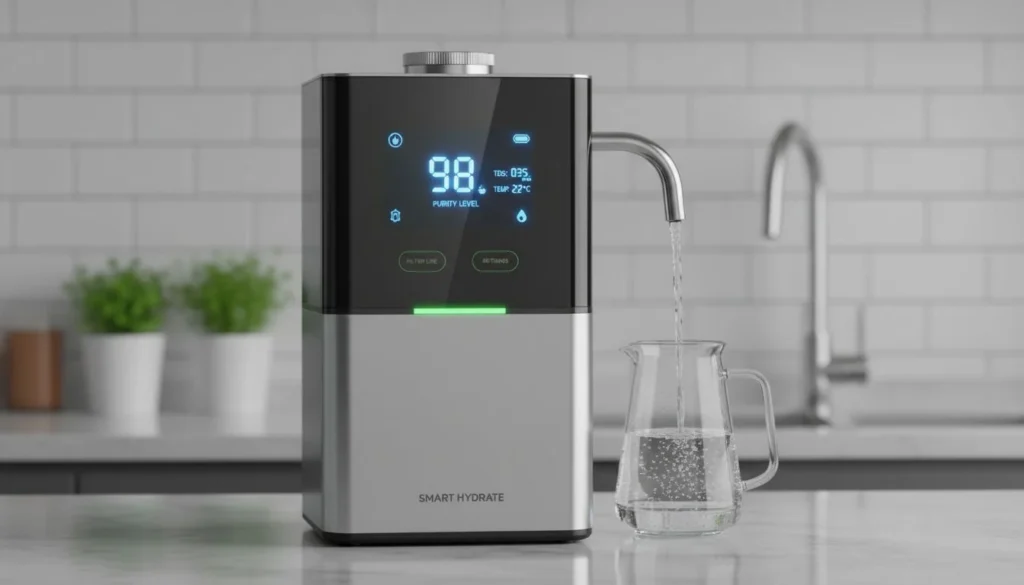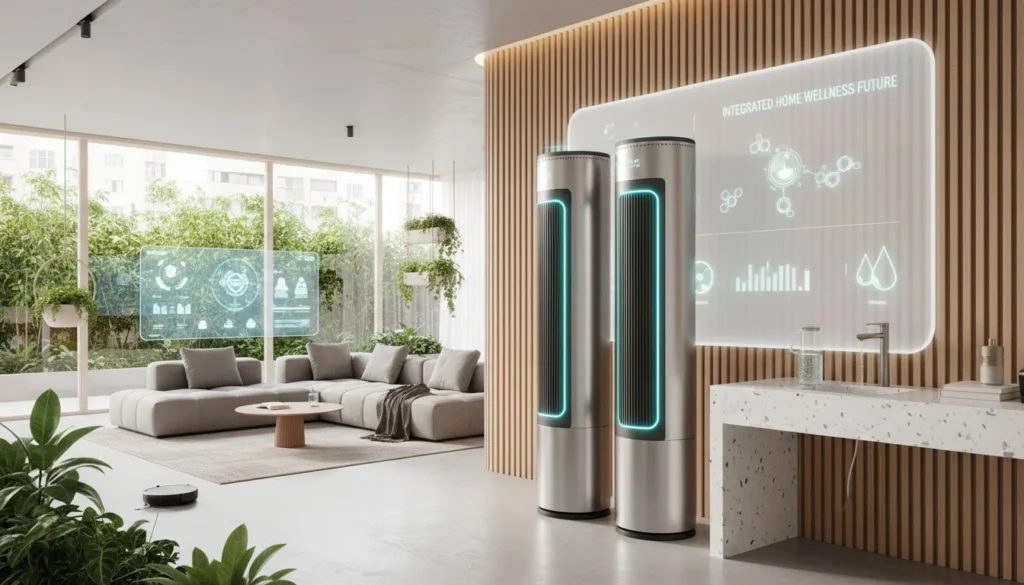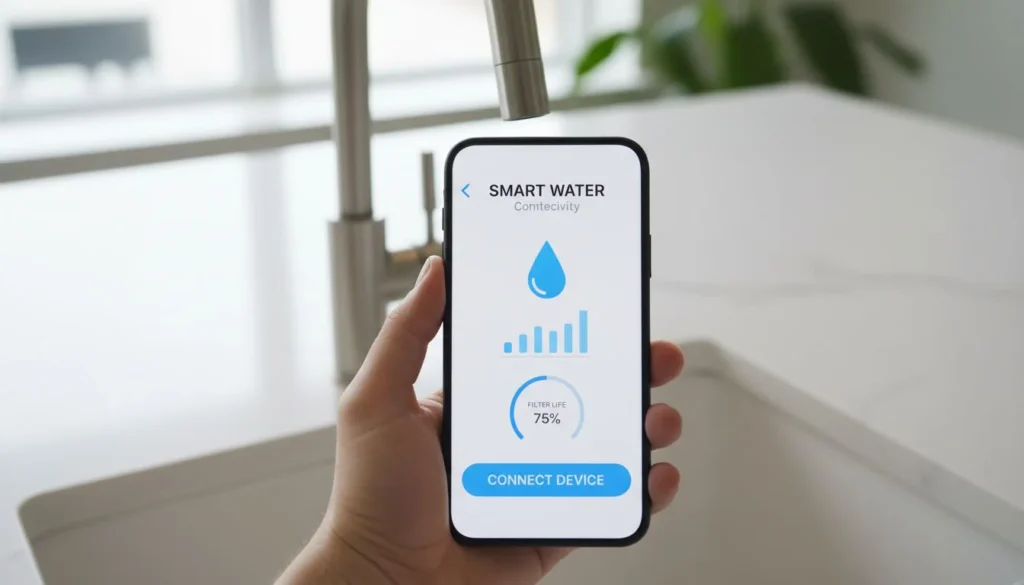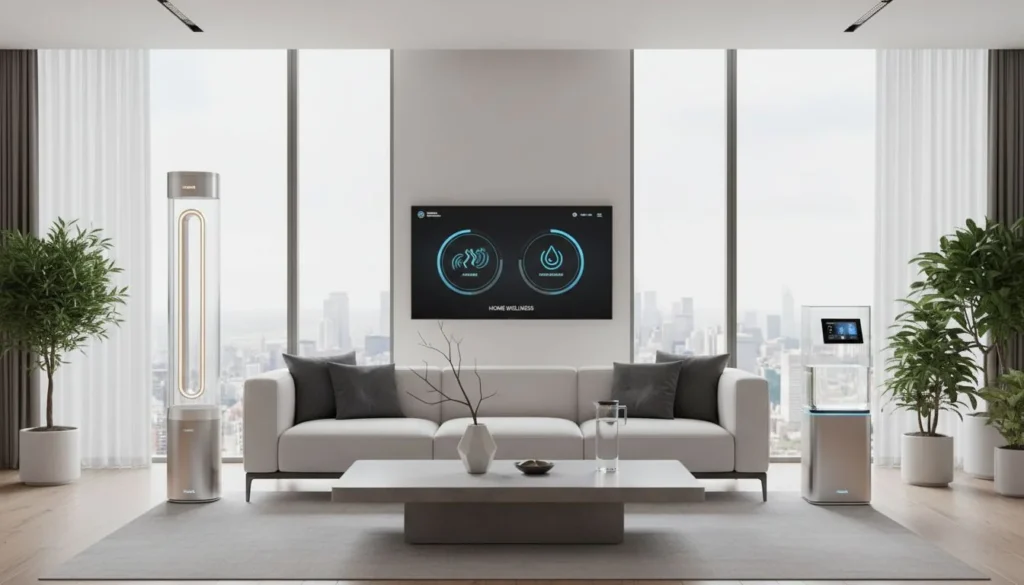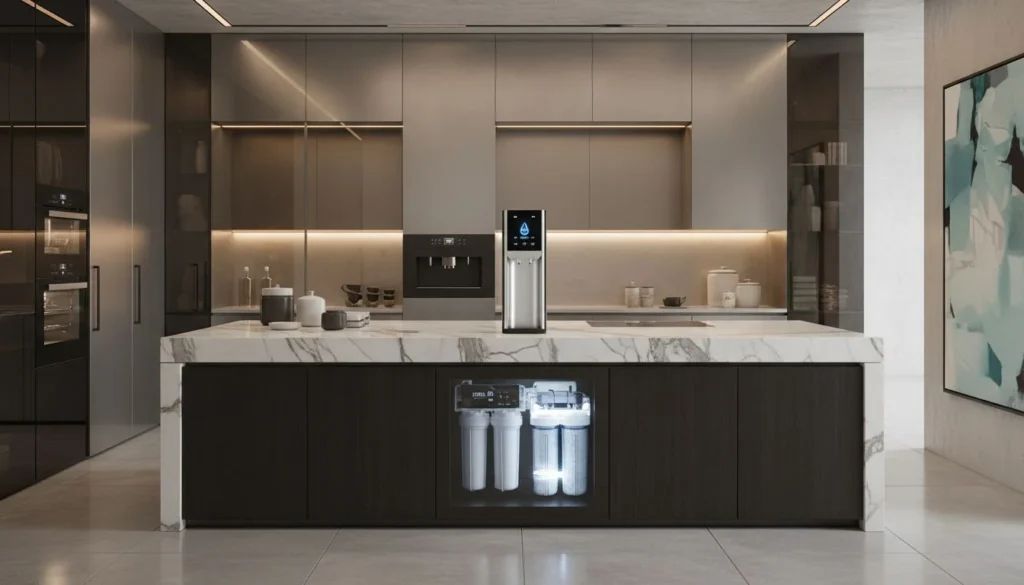I filtri HEPA sono una scelta popolare nella purificazione dell'aria, utilizzati per catturare efficacemente le particelle trasportate dall'aria e migliorare la qualità dell'aria in vari ambienti. Negli ultimi anni, la loro elevata efficienza nel rimuovere polvere, allergeni, batteri e persino virus li ha resi essenziali nei depuratori d'aria per case, scuole, ospedali e uffici.
Che cos'è un filtro HEPA?
HEPA (aria particolata ad alta efficienza) I filtri rimuovono i contaminanti dall'aria catturando il 99,97% di particelle di 0,3 micron.1polvere, polline, forfora di animali domestici e alcuni batteri e virus. La loro efficienza li rende ideali per gli ambienti in cui l'aria pulita è essenziale. Ad esempio, i filtri HEPA sono particolarmente efficaci nel ridurre gli allergeni, il che può alleviare i problemi respiratori delle persone sensibili (fonte).
Capire come funzionano i filtri HEPA, i loro vantaggi e i loro limiti aiuta gli utenti a scegliere il purificatore d'aria giusto. Continuate a leggere per saperne di più sui filtri HEPA, sulle altre tecnologie di filtrazione e sul loro confronto.
Sì, i filtri HEPA sono adatti alle strutture mediche.Vero
Grazie alla loro elevata efficienza, i filtri HEPA sono spesso utilizzati in ambito medico per garantire un'aria priva di contaminanti.
Perché i filtri HEPA sono efficaci nei depuratori d'aria?
I filtri HEPA sono altamente efficienti nella purificazione dell'aria, soprattutto in ambienti in cui la pulizia è fondamentale, come ad esempio strutture mediche2. La struttura a fibre dense dei filtri HEPA intrappola un'ampia gamma di particelle, fornendo aria purificata che riduce allergeni, polvere e altri inquinanti.
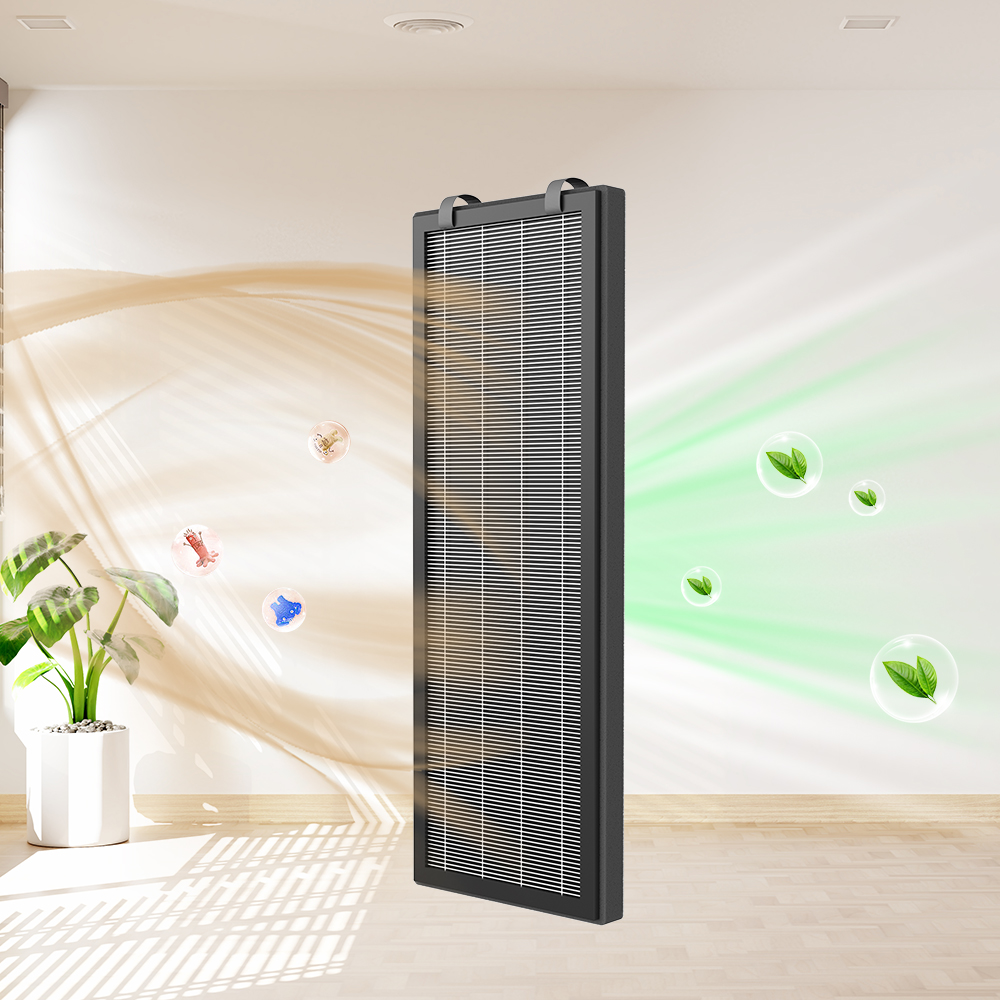
Come funzionano i filtri HEPA
I filtri HEPA funzionano facendo passare l'aria attraverso una rete fine che intrappola le particelle nocive, a differenza dei filtri convenzionali che possono non rilevare gli inquinanti più piccoli (fonte). Questo filtro è altamente efficace nel rimuovere il 99,97% di particelle sospese nell'aria, catturando allergeni e sostanze irritanti per fornire aria pulita e respirabile. Nei depuratori d'aria, i filtri HEPA funzionano in modo continuo, mantenendo un'elevata qualità dell'aria per tutto il giorno.
Filtri HEPA contro altre tecnologie di filtrazione
Rispetto ad altri metodi di purificazione dell'aria, come ad esempio generatori di ioni, filtri al plasma o luce UVI filtri HEPA offrono un'opzione più sicura e affidabile per la salute umana. Ionizzazione e tecnologie al plasma producono ioni o particelle reattive che possono portare a formazione di ozono3-un irritante per le vie respiratorie (fonte). I filtri HEPA, invece, catturano fisicamente le particelle senza rilasciare alcun prodotto secondario, il che li rende la scelta preferita per mantenere la qualità dell'aria interna.
I filtri HEPA possono intrappolare gas come i COV.Falso
I filtri HEPA sono progettati per catturare le particelle, non i gas o gli odori; per i VOC è necessario un filtro a carboni attivi.
Tecnologie di filtrazione a confronto
Per comprendere le differenze, ecco una tabella comparativa delle varie tecnologie di filtrazione e delle loro caratteristiche:
| Tecnologia di filtrazione | Efficienza | Sottoprodotti | Applicazioni comuni | Vantaggi principali | Limitazioni |
|---|---|---|---|---|---|
| Filtro HEPA | Alto | Nessuno | Case, ospedali, | Rimuove 99,97% di particelle | Non rimuove gas come i COV4 |
| uffici | fino a 0,3 micron | ||||
| Carbone attivo | Moderato | Nessuno | Purificatori d'aria, HVAC | Assorbe VOC e odori | Meno efficace per il particolato |
| Generatore di ioni | Moderato | Ozono | Industriale, | Riduce gli allergeni e le particelle | L'ozono può irritare le vie respiratorie |
| purificatori d'aria | |||||
| Luce UV-C | Variabile | Nessuno | Ospedali, laboratori, | Distrugge batteri e virus | Efficacia limitata per le particelle |
| purificatori d'aria | |||||
| Tecnologia al plasma | Alto | Ozono | Industriale | Efficace per la sterilizzazione | Produce particelle reattive |
Usi ideali per i filtri HEPA
I filtri HEPA sono comunemente utilizzati in case, ospedali, uffici e in qualsiasi ambiente in cui l'aria pulita è una priorità. Sono particolarmente utili per alleviare le allergie e i problemi respiratori.5. Catturando le particelle fini e gli allergeni, i filtri HEPA creano un ambiente interno più sano. In ambito medico, i filtri HEPA garantiscono un'aria priva di agenti patogeni, riducendo al minimo i rischi di contaminazione.
Qual è il significato di HEPA?
HEPA o Aria particolata ad alta efficienzaè uno standard per l'efficacia del filtraggio dell'aria. I filtri HEPA devono rimuovere il 99,97% di particelle fino a 0,3 micron, ovvero le dimensioni di molti inquinanti presenti nell'aria. Questa elevata efficienza aiuta a ridurre gli allergeni, i batteri e gli agenti inquinanti, contribuendo a un ambiente più sano (fonte).
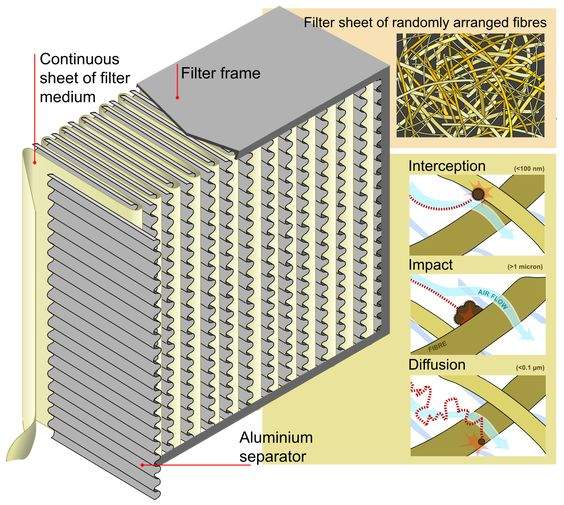
Standardizzati per la qualità
Lo standard HEPA, stabilito dalle agenzie di regolamentazione, garantisce che i filtri soddisfino l'efficienza necessaria per la purificazione dell'aria. Questo standard rende i filtri HEPA una scelta affidabile per gli ambienti che richiedono una filtrazione dell'aria costante e di alta qualità.
Vantaggi dell'uso dei filtri HEPA
I filtri HEPA offrono numerosi vantaggi oltre alla rimozione degli allergeni. La loro filtrazione fine riduce i problemi respiratori e crea un ambiente più pulito e sicuro, soprattutto negli spazi in cui sono presenti popolazioni vulnerabili, come bambini, anziani o persone con problemi di salute.6.
I filtri HEPA migliorano notevolmente la qualità dell'aria.Vero
I filtri HEPA intrappolano le particelle microscopiche e sono quindi molto efficaci nel migliorare la qualità dell'aria interna.
Le origini e i progressi della tecnologia HEPA
La tecnologia HEPA è stata inizialmente sviluppata dalla Militari statunitensi durante la Seconda Guerra Mondiale per proteggere i soldati dalle particelle radioattive presenti nell'aria.7. Da allora, i filtri HEPA si sono evoluti per servire diversi settori, tra cui quello sanitario, gli spazi commerciali e le applicazioni residenziali.
I progressi della tecnologia dei supporti HEPA
I moderni filtri HEPA sono ora dotati di tecnologia mediatica avanzata che consente un flusso d'aria più elevato con una bassa resistenza8. Grazie a questi progressi, i depuratori d'aria dotati di filtri HEPA sono in grado di pulire in modo efficiente volumi d'aria più ampi senza dover ricorrere a velocità elevate della ventola, riducendo il rumore e il consumo energetico. Questi miglioramenti hanno reso i filtri HEPA ancora più efficaci, portando aria più pulita a un maggior numero di persone.
Perché i filtri HEPA hanno bisogno di filtri a carbone?
I filtri HEPA sono eccellenti nel catturare le particelle, ma non sono in grado di rimuovere gli odori o i gas, come i composti organici volatili (VOC).9. Per ovviare a questo problema, molti depuratori d'aria abbinano filtri HEPA a filtri a carbone attivoche assorbono COV e odori, costituendo una combinazione ideale per una gestione completa della qualità dell'aria.
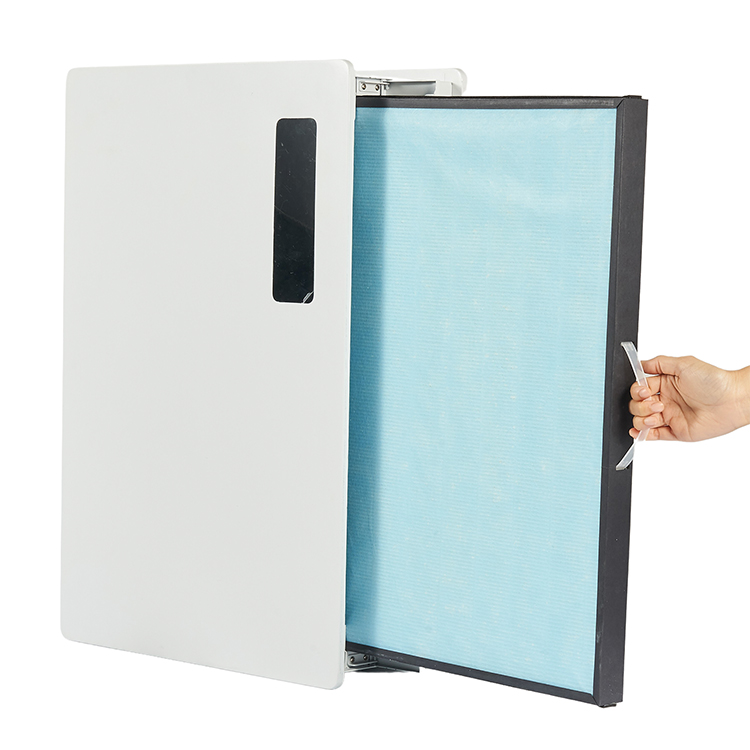
Quando utilizzare sia i filtri HEPA che quelli a carbone
Negli ambienti in cui l'inquinamento atmosferico comprende inquinanti gassosi (ad esempio, provenienti da vernici, prodotti per la pulizia o fumo), la combinazione di filtri HEPA e a carbone può garantire una purificazione dell'aria più completa. Questa combinazione garantisce la rimozione sia delle particelle che dei gas nocivi, creando un ambiente più fresco.
Vantaggi della doppia filtrazione
L'utilizzo della filtrazione HEPA con carbone può ridurre efficacemente gli allergeni e gli odori più comuni, creando un ambiente fresco e pulito. Questo doppio approccio è particolarmente vantaggioso in ambienti come scuole, uffici e case in cui possono essere presenti COV.
I filtri HEPA e a carbone garantiscono una pulizia completa dell'aria.Vero
Insieme, questi filtri catturano le particelle e assorbono i VOC e gli odori, garantendo un'aria più pulita.
Vantaggi dei filtri HEPA nei depuratori d'aria
I filtri HEPA sono essenziali per la purificazione dell'aria di alta qualità, riducendo i contaminanti e migliorando la qualità dell'aria in qualsiasi ambiente.
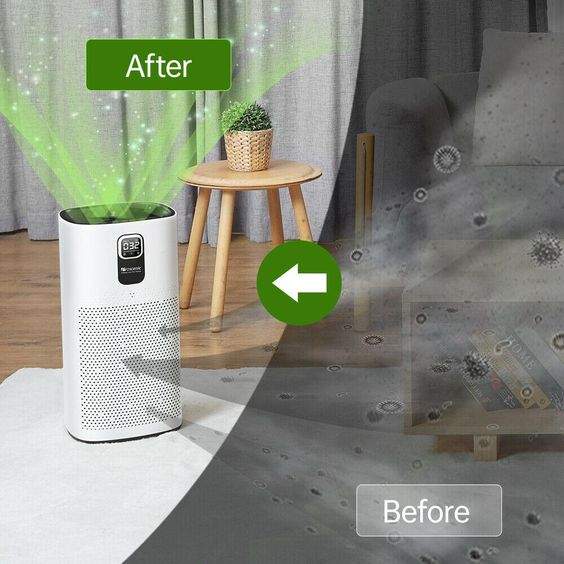
Migliorare la qualità dell'aria con i filtri HEPA
I filtri HEPA catturano le particelle che causano problemi respiratori, a vantaggio delle famiglie con animali domestici o situate in aree urbane con alti livelli di inquinamento. I filtri riducono gli allergeni, la polvere e la forfora, garantendo un'atmosfera più sana.
Bassa manutenzione, alta efficienza
I filtri HEPA sono durevoli e in genere devono essere sostituiti solo ogni 6-12 mesi, a seconda dell'utilizzo. La loro lunga durata e i bassi requisiti di manutenzione li rendono una soluzione economica per la gestione a lungo termine della qualità dell'aria.10.
I filtri HEPA richiedono poca manutenzione.Vero
I filtri HEPA richiedono sostituzioni poco frequenti, offrendo convenienza e affidabilità.
Conclusione
I filtri HEPA sono una soluzione comprovata e altamente efficace per migliorare la qualità dell'aria interna catturando le particelle sottili e garantendo così ambienti più puliti e salubri. Originariamente sviluppati in ambito militare, i filtri HEPA continuano a essere la scelta preferita per la purificazione dell'aria in case, luoghi di lavoro e strutture mediche grazie alla loro sicurezza, affidabilità e ai continui progressi.
-
Efficienza di filtrazione HEPA: I filtri HEPA rimuovono il 99,97% di particelle a 0,3 micron e sono quindi ideali per rimuovere particelle fini e allergeni. ↩
-
Uso medico dei filtri HEPA: I filtri HEPA sono comunemente utilizzati nelle strutture mediche per garantire un'aria priva di agenti patogeni e ridurre la contaminazione. ↩
-
Rischi della filtrazione a ionizzazione: Le tecnologie a ionizzazione e al plasma possono emettere ozono, che può irritare il sistema respiratorio. ↩
-
Filtrazione HEPA e VOC: Mentre l'HEPA è efficace per le particelle, i COV richiedono un filtro a carboni attivi per essere assorbiti. ↩
-
HEPA per il trattamento delle allergie: I filtri HEPA sono efficaci per ridurre gli allergeni nell'aria, migliorando la salute dei soggetti sensibili. ↩
-
Vantaggi per la salute dei filtri HEPA: La tecnologia HEPA aiuta a ridurre gli allergeni, i problemi respiratori e l'inquinamento generale dell'aria interna. ↩
-
Origini militari dell'HEPA: Sviluppata dall'esercito americano, la tecnologia HEPA è stata inizialmente utilizzata per filtrare le particelle radioattive. ↩
-
Tecnologia avanzata dei supporti HEPA: Le innovazioni nei materiali dei filtri HEPA consentono oggi di ottenere un flusso d'aria più elevato e una minore resistenza nei depuratori d'aria. ↩
-
Utilizzo di filtri HEPA con filtri a carbone: L'accoppiata HEPA e carbone attivo migliora la qualità dell'aria rimuovendo particelle e VOC. ↩
-
Manutenzione del filtro HEPA: I filtri HEPA hanno una lunga durata e devono essere sostituiti solo occasionalmente, il che li rende convenienti per un uso a lungo termine. ↩


